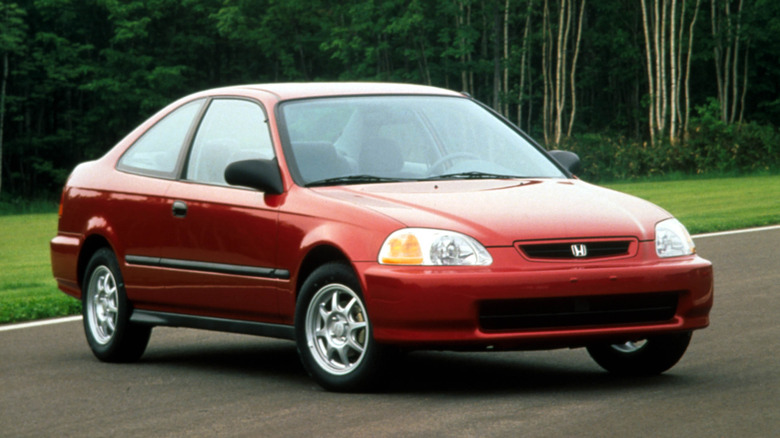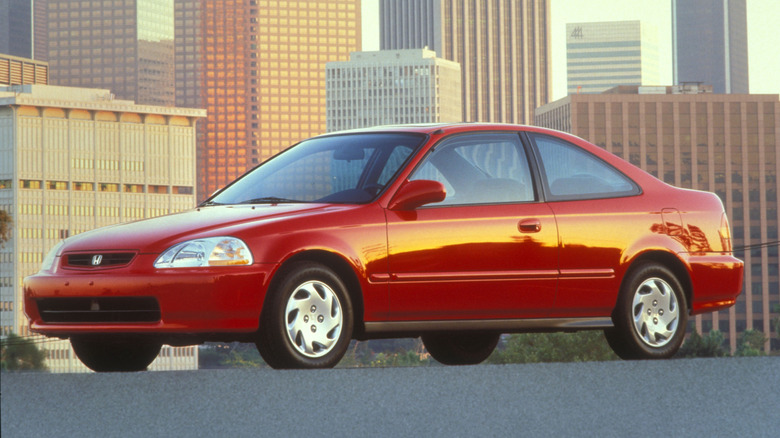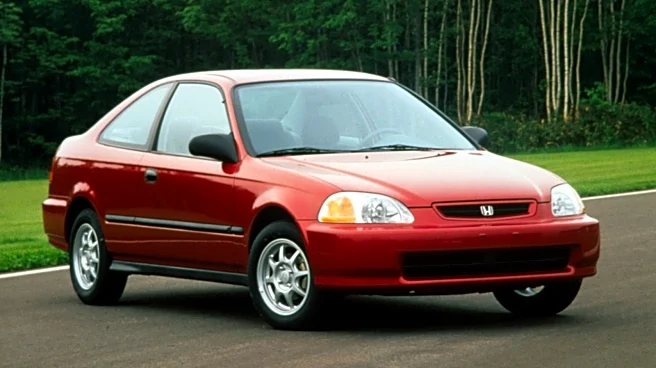
Japanese automaker Honda started using continuously variable transmissions (CVT) in the 1996 Civic HX Coupe, earning it the distinction of being the first automatic car to make it to the EPA's top 10 list
of most fuel-efficient cars that year. It came in second place to the Geo Metro, a vehicle that those who are old enough to remember was the epitome of cheap, fuel-efficient, yet somewhat crappy transportation.
The Metro earned the EPA's first-place nod by registering an excellent 44 mpg city and 49 mpg highway. Meanwhile, the CVT-equipped Civic HX Coupe, fresh from its sixth-generation EK-Series debut (the best Civic in my book, mainly for being the last Civic to have double wishbones in the front and rear), can achieve 35 mpg city and 41 mpg highway. What's more, the Civic HX accelerates from zero-to-60 mph in 9.4 seconds, which happens to be faster by around 1.1 seconds than a Civic sedan with a conventional four-speed automatic gearbox.
The CVT has been around for a surprisingly long time (having been invented by the British in 1923), and it works differently than a conventional gear-driven automatic. Since launching the Civic HX CVT in 1996, Honda's CVT has migrated to its other offerings, particularly the CR-V, HR-V, and Accord -- Honda even made a CVT for bikes -- but does it bring the promise of reliability that customers expect from the Honda badge?
Read more: These Are The Worst Transmission Recalls Of The Last 5 Years
Are Honda CVTs Reliable?

The answer is a mixed bag. Imperial Valley Honda said: "Some Honda owners with CVTs have experienced issues not limited to one generation, like fluid leaks and overheating, but most drivers can fix, prevent, or even ignore minor issues." Moreover, it adds: "Despite their durability, Honda CVTs can encounter issues; however, with proper care, they can help owners exceed 300,000 miles on their vehicles." The Reddit community has a few things to say about Honda CVTs. A 2016 HR-V owner had to replace the CVT, and according to Honda technicians, blown CVTs are common in cars frequently launched at stoplights. As long as you keep it steady, stop ignoring service bulletins, and avoid treating your Honda like a getaway vehicle, owners can expect hundreds of thousands of trouble-free miles from their CVT gearboxes.
However, the r/cars subreddit has a different take. There's a 2013 Accord Sport that the owner bought new, but they had to replace the CVT at 90,000 miles, although the Honda Care warranty covered everything. On the flip side, a 2016 Civic with 85,000 miles hasn't had a single issue and is ticking like a clock.
The point is that any machine, whether an internal combustion engine or a CVT transmission, requires periodic maintenance, including regular inspection, draining, and replenishing of the CVT fluid. Similar to automatic transmission fluid (ATF), CVT fluid won't last forever and will eventually degrade to a watery, sludgy mess, most especially after succumbing to numerous heat cycles. When it does, symptoms like slipping, juddering, delayed acceleration, and unusual noises will emanate from the CVT, which are telltale signs of imminent failure.
How To Care For Your Honda's CVT

Besides not driving like a loon and not treating stoplights like a personal drag strip, Honda recommends CVT fluid changes every 25,000 miles, but that number is for vehicles that undergo heavy use. However, Honda dealerships would typically recommend a fluid change every 30,000 miles or once every 40,000 miles, depending on the car and how it's driven. Maintaining the integrity of the CVT fluid is vital to keeping your Honda CVT performing its best, and the same applies to any car with a conventional automatic, CVT, or dual clutch transmission. Things to avoid include using the wrong type of fluid, which will severely damage your Honda CVT.
When something goes wrong, Honda CVTs have a "limp home" mode that illuminates a check engine light to warn the driver and prevent more damage to the CVT. When this happens, bring your car for servicing immediately to diagnose the fault and address the issue before something as trivial as a CVT fluid change turns into a wallet-busting, CVT replacement.
Want more like this? Join the Jalopnik newsletter to get the latest auto news sent straight to your inbox...
Read the original article on Jalopnik.









